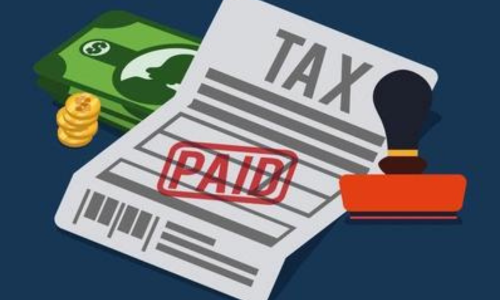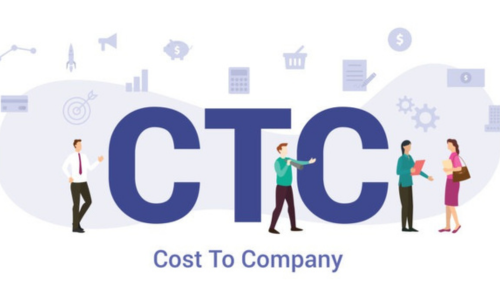Introduction
Today, I’m going to share a straightforward way to save ₹13.75 lakh in taxes if you’re a salaried taxpayer. This isn’t something that comes along every day, so it’s worth paying attention to. As salaried individuals, we often feel weighed down by taxes, while others, like business owners and freelancers, seem to have more ways to save. This guide is all about helping you keep more of what you earn.
Here’s what you’ll learn:
1. The Trick: A simple method to slash your tax bill.
2. The Process: Easy steps to put this strategy into action.
3. Negotiation: Tips on discussing this with your employer.
4. Impact on CTC: What this might mean for your Cost to Company (CTC).
5. Practical Tips: How to make sure you succeed with this approach.
This isn’t just theory—it’s a proven strategy that many people I’ve worked with have already used successfully.
The Trick
If you’re earning ₹50 lakh or more per year—let’s take ₹75 lakh as an example—you’d normally pay taxes on almost ₹73 lakh of that income under the new tax regime. This is after accounting for the standard ₹75,000 deduction and a few other minor deductions. So, someone making ₹75 lakh ends up paying taxes on ₹73 lakh, which is a lot.

But what if you could be taxed on only half of that? If you shift from being a salaried employee to being classified as a professional, you could potentially pay taxes on just 50% of your income. Thanks to Section 44ADA of the Income Tax Act, professionals can declare only 50% of their income as taxable without needing to explain any expenses. For a ₹75 lakh income, this means your taxable income would drop to ₹37.5 lakh. This change could save you around ₹13.75 lakh in taxes!
You might be thinking, “There’s no way my company would agree to this.” But with the right approach, it’s more possible than you might think. It doesn’t cost companies anything extra to make this change, and with some negotiation, you can make it happen.
The Process
Here’s how to do it. The process is pretty simple. Instead of being hired as a salaried employee, you would ask your employer to cancel your current employment and rehire you as a professional.
This change can work for many professions. Whether you’re in IT services, marketing, a Chartered Accountant (CA), a Cost and Management Accountant (CMA), a lawyer, or a doctor on a company’s payroll, you can benefit from being taxed under Section 44ADA. This section allows you to declare only 50% of your income as taxable, cutting your tax bill in half.

Keep in mind that 50% refers to your taxable income, not the tax itself. With a lower taxable income, you can still take advantage of the existing tax slab rates, reducing your taxes even further.
Negotiating with Your Employer
Now, how do you bring this up with your employer? It might seem intimidating, but it’s definitely possible. The key is to approach the conversation confidently, knowing your value to the company.
Let’s divide salaried employees into two groups:
1. Those in big companies
2. Those in smaller companies or startups
If you’re in a big company and earning ₹50 lakh to ₹75 lakh annually, you’re likely in an important position. Your role and experience are valuable to the company, giving you leverage. You can approach your HR department and negotiate a change in your employment status from salaried to professional. This change can make a big difference in your tax liability.
Some of my clients have successfully made this shift. It might not happen on your first try, but with persistence, it can be done. You can either ask for a raise to offset the high taxes or request a change in status to a professional, similar to a freelancer working for the company. Your new appointment letter would reflect this updated employment status.
If you’re in a smaller company or startup, the process might be even easier. Smaller companies are often more flexible and open to negotiating terms, especially if your role is critical to their success.
Impact on CTC
A common concern is how this change might impact your Cost to Company (CTC), especially things like the Provident Fund (PF). Most companies calculate your CTC as the total cost they incur on you, which includes PF, medical insurance, and other benefits.
If you switch to professional status, your CTC can often stay the same or at least not be significantly reduced. In some cases, companies might even agree to pay you the PF contribution as a bonus or incentive.

The key is understanding that the company’s overall cost doesn’t change—just the structure of your compensation does. So, if you’re earning ₹50 lakh to ₹75 lakh, it’s worth negotiating. The potential tax savings are substantial, and while it might take some persistence, it’s definitely possible.
For Those Earning Less (₹20 lakh to ₹40 lakh)
What about those earning ₹20 lakh to ₹40 lakh annually? If you’re not in a position to influence big company decisions, think about joining a smaller company or startup. These companies might be more flexible, especially if you have critical skills or expertise in high-demand fields like AI or emerging technologies.
Startups, where your skills are crucial to their growth, are likely more open to negotiating your employment terms, including your tax status. If you’re not in a critical role now, consider upskilling or moving to a company where your skills are more valued.
Even if this strategy isn’t straightforward for lower earners, it’s still worth exploring. Even if you’re not immediately successful, you’ll gain valuable insights into what’s possible for future roles.
Conclusion
In conclusion, a simple change in your employment status can save you ₹13.75 lakh in taxes. It might take some effort and negotiation, but it’s a practical and achievable solution. Remember, there’s no harm in trying—at worst, they might say no, but at least you’ve taken a step toward reducing your tax burden.
If you’re serious about lowering your tax liability, invest in learning skills that make you indispensable to your company. This will give you more negotiating power. The corporate world can be tough, and salaried individuals often bear the brunt of tax burdens. The key is to think creatively, take control of your financial future, and don’t be afraid to negotiate for what you deserve.


